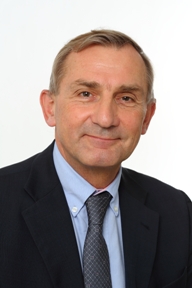La Poste’s express parcels subsidiary GeoPost expects further high single-digit growth this year, will expand sorting capacity and its alternative delivery network and is considering acquisitions in South-East Asia and South America to develop its overseas parcel businesses, CEO Paul-Marie Chavanne told CEP-Research in an exclusive interview.
In 2015, the company, now trading as DPDgroup, delivered more than one billion parcels for the first time, which was a 16.4% rise, while revenues increased by 15.3% to €5,675 million. Underlying operating profit increased by 11% to €367 million. However, reported operating profit dropped by 5.9% to €268 million, when including a non-recurring €99 million provision for a fine resulting from the French Competition Authority’s investigation of French transportation carriers.
“We had organic growth in every country, strong growth in European cross-border flows and a big rise in B2C which is driving our growth,” Chavanne said at La Poste’s 2015 results press conference in Paris. There was also a rise in flows from Europe to other parts of the world.
However, Chavanne confirmed there is “continuous pressure on prices”, especially with the increasing concentration of e-commerce retailing “in a small number of hands”. This is reflected in like-for-like growth of 9.1% in revenues compared to higher underlying growth of 10.9% for volumes. These figures also show the changing product mix, with a higher proportion of lower-priced B2C shipments. B2C parcels now make up 30% of DPDgroup volumes compared to 70% for B2B shipments.
Chavanne expects similar growth again this year for the company, which claims to be the second-largest parcels operator in Europe with a market share of 13.2%.
The top major growth market in 2015 was the UK, where DPD revenues grew by 17% and volumes by 18.6%. Spain increased volumes by 12.2% and revenues by 9.5%. There was also strong revenue growth in Benelux (+14%), Poland (+9.1%) and Germany (+8%). Overall, 82% of DPDgroup volumes are generated outside France.
Discussing plans for this year, Chavanne said the express parcels division will continue investing to expand capacity to cope with rising volumes. Major investments are taking place in the UK and Germany, for example. “The 9% organic growth has been very similar in recent years. If we plan 7-8% growth for the next few years, then we will have to increase capacity by nearly 35%,” he explained. Investments will mostly be made in new or enlarged depots.
In 2015, DPDgroup opened the largest hub in Europe, at Hinckley, near Birmingham in central England, with capacity to process 720,000 parcels a day. Other new hubs opened in Lithuania (Kaunus), France (Courcelles-les-Lens) and Spain (Guarromán).
Moreover, the group will press ahead with expansion of its network of parcel lockers through the cooperation with Neopost. At present about 160 of the planned 1,000 lockers have been installed, mostly in Paris, and more locations will go into operation in 14 cities this year. The group is cooperating with SNCF to install lockers at train stations, which are particularly attractive locations. The group’s Pickup network currently has 22,000 collection points, mostly parcel shops, in 14 European countries.
Further expansion of the international network is another priority. “Our goal is to invest in all interesting emerging countries,” the GeoPost chief said. “We are looking for new opportunities in South-East Asia and in South America.” The French group is specifically considering deals with parcel operators in these two regions, he said.
GeoPost would maintain its usual policy of first signing commercial agreements, then taking a minority stake in the partner and finally acquiring majority ownership if the partner wanted to sell, he confirmed.
In 2015, GeoPost spent the bulk of the group’s €130 million investment in acquisitions, buying an 80% stake in food delivery operator Resto-In, 22% in urban urgent delivery start-up Stuart, and full ownership of DPD Systemlogistik in Germany, Australian operator Worldlink Perth and Signet UK.
The investments in Resto-In and Stuart are significant as both companies operate in the fast-growing same-day urgent deliveries segment, using an Uber-style business model of ‘crowdsourced’ part-time self-employed delivery workers. Stuart is active in Paris and is about to launch in London, while Resto-In has operations in various French and European cities.
“No one know what will happen but there are a lot of signals from the market that this is developing very quickly,” Chavanne commented. “It’s not only about e-commerce (retailing) but also (food) shopping. At the moment this is mostly about delivering food to homes but we think this segment will extend to other segments in future. We are totally committed to being part of any new kind of delivery system.”












